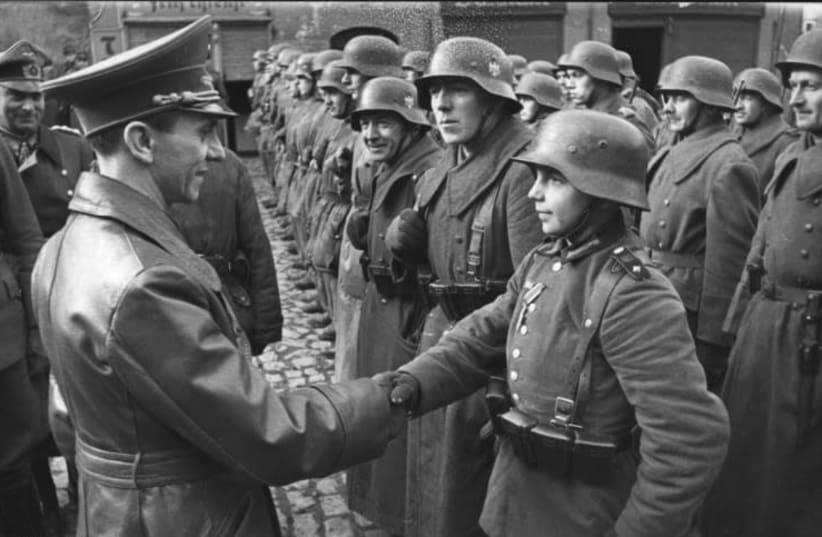In a recent documentary, titled Final Account, which was screened in the 2020 Venice Film Festival in September, late British filmmaker Luke Holland offers a glimpse into the dark past of elderly Nazis, according to the Hollywood Reporter.
The 90-minute film is the product of 12 years of laborious work that included some 1,000 hours of recorded videos and 300 interviews with the those who were old enough to remember what it was like to live in the Third Reich.
Among the men and women whom Holland interviewed for the documentary, some joined the Hitler Youth Movement while others grew up to be Werchmant soldiers. Some even spoke favorably of the idea of joining the Nazi youth, movement saying that it was "good idea" at the time. In a jarring moment, a former Waffen SS member proudly displays a tattoo on his arms, suggestive of his blood group which is a sign of bravery.Another man, recalling the moments during which he witnessed how Hungarian SS soldiers burned down an entire village and shot down the survivors who fled their burning houses.
While most of them expressed a regret over what had happened, it was nonetheless important for them to stress that they did not played a part in it, despite proudly keeping their Nazi membership cards and some still believing in what they represent.
Some have gone as far as preserving photos and other objects from a time in which they were children growing up in a country responsible for the deaths of millions. Others, shared their memories of gaunt and famished camp prisoners while casually conversing over tea and cookies.
The most disturbing account is given by those who remember the rising black smoke from the death camps, and recall the smell of burning human flesh spreading in a radius of two kilometers (1.2 miles).
Karl Hollander, who is featured in the film, admits supporting Hitler to this day.
In a different account, Heinrich Schulze confesses that he personally reported a Jewish family that hid in a barn that belonged to his family. He goes even further, taking Holland to the barn which still stands to this day.
Of all the participants, one man is an exception. Hans Wierk, who confronted a young neo-Nazi, with tears in his eyes: "I only ask this of you: do not let yourself be blinded."
Holland, who passed away at the age of 71 in last June, managed to produce a powerful and in the same time horrifying portrayal of "what it was like" for those who were, seemingly, ordinary Germans.
